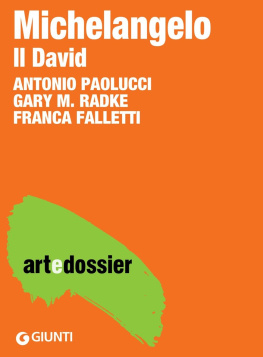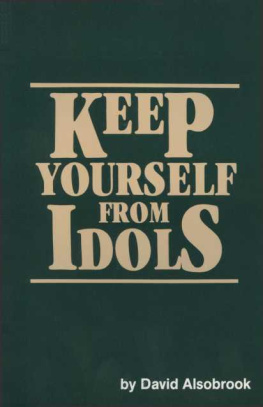David Zindell - Neverness
Here you can read online David Zindell - Neverness full text of the book (entire story) in english for free. Download pdf and epub, get meaning, cover and reviews about this ebook. year: 1990, publisher: Grafton Books, genre: Detective and thriller. Description of the work, (preface) as well as reviews are available. Best literature library LitArk.com created for fans of good reading and offers a wide selection of genres:
Romance novel
Science fiction
Adventure
Detective
Science
History
Home and family
Prose
Art
Politics
Computer
Non-fiction
Religion
Business
Children
Humor
Choose a favorite category and find really read worthwhile books. Enjoy immersion in the world of imagination, feel the emotions of the characters or learn something new for yourself, make an fascinating discovery.
- Book:Neverness
- Author:
- Publisher:Grafton Books
- Genre:
- Year:1990
- Rating:5 / 5
- Favourites:Add to favourites
- Your mark:
- 100
- 1
- 2
- 3
- 4
- 5
Neverness: summary, description and annotation
We offer to read an annotation, description, summary or preface (depends on what the author of the book "Neverness" wrote himself). If you haven't found the necessary information about the book — write in the comments, we will try to find it.
Neverness — read online for free the complete book (whole text) full work
Below is the text of the book, divided by pages. System saving the place of the last page read, allows you to conveniently read the book "Neverness" online for free, without having to search again every time where you left off. Put a bookmark, and you can go to the page where you finished reading at any time.
Font size:
Interval:
Bookmark:
On Old Earth, the ancients often wondered at the origin of life, and they created many myths to explain the mystery of mysteries. There was Mumu the mother goddess who swallowed a great snake which multiplied inside of her and whose nine billion children ate their way through her belly into the light of day and so became the animals of the land and the fishes of the sea. There was a father god, Yahweh, who created Earth and the heavens in six days and who called forth the birds and the beasts on days five and six. There was a fertility goddess and a goddess of chance named Random Mutation. And so on. And so on. The truth is, life throughout the galaxy was everywhere seeded by a race known as the Ieldra. Of course the origin of the Ieldra is unknown and perhaps unknowable; the ultimate mystery remains.
from A Requiem for Homo Sapiens by Horthy Hosthoh, Timekeeper and Lord Horologe of the Order of Mystic Mathematicians and Other Seekers of the Ineffable Flame
There is infinite hope, but not for Man.
Franz Kafka, Holocaust Century Fabulist
Long before we knew that the price of the wisdom and immortality we sought would be almost beyond our means to pay, when man - what was left of man - was still like a child playing with pebbles and shells by the seashore, in the time of the quest for the mystery known as the Elder Eddas, I heard the call of the stars and prepared to leave the city of my birth and death.
I call her Neverness. The founders of our Order, so the Timekeeper once told me, having discovered a neighborhood of space where the pathways through the manifold twist and loop together like a hard knot of string, decided to build our city on a nearby planet named Icefall. Because such knots of space were once thought to be rare or nonexistent - the cantors now call them thickspace - our first Timekeeper declared that we could fall through the galaxy until the universe collapsed inward upon itself and never find a denser thickspace. How many billions of pathways converge around our cool yellow star no one knows. There are probably an infinite number of them. The ancient cantors, believing that their theorems proved the impossibility of an infinite thickspace, had predicted that our pilots would never find the topological nexus that they sought. So when our first Lord Pilot had fallen out of the manifold above the small, cold, mountainous island that was to shelter our beloved and doomed city, he named her Neverness, in mockery of the nay-saying academicians. Of course to this day the cantors call her the Unreal City, but few pay them much attention. I, Mallory Ringess, whose duty it is to set forth here the history of the golden age and great crisis of our Order, shall follow the tradition of the pilots who came before me. Neverness - so I knew her as a child when I entered the novitiate such a short time ago; Neverness I call her now; Neverness she will always remain.
On the fourteenth day of false winter in the year 2929 since the founding of Neverness, Leopold Soli, my uncle and Lord Pilot of our Order, returned to our city after a journey lasting twenty-five years - four years longer than I had been alive. Many pilots, my mother and Aunt Justine among them, had thought him dead, lost in the inky veils of the manifold or perhaps incinerated by the exploding stars of the Vild. But he, the famous Lord Pilot, had fooled everyone. It was the talk of the city for eighty days. As false winter hardened and the light snows deepened, I heard it everywhere whispered, in the cafes and bars of the Farsider's Quarter as well as the towers of the Academy, that there would be a quest. A quest For journeymen pilots such as we were then - in a few more days we would take our pilot's vows - it was an exciting time, and more a time of restlessness and excruciating anticipation, Within each of us stirred a dreamlike but deeply felt intimation and fear that we would be called to do impossible things, and soon. What follows, then, is a chronicle of the impossible, a story of dreams and fears and pain.
At twilight of the evening before our convocation, my fat, lazy friend Bardo and I devised a plan whereby we - I - could confront the Lord Pilot before the next day's long, boring ceremony. It was the ninety-fourth of false winter. Outside our dormitory rooms, a soft snow had recently fallen, dusting the commons of the pilot's college with a veil of cold white powder. Through our frosted windows, I saw the towers of Resa and the other colleges gleaming in the light of the setting sun.
"Why do you always do what you're not supposed to do?" Bardo asked me as he stared mournfully at me with his large brown eyes. I had often thought that the whole of his complicated character and cunning intelligence was concentrated in his great, bulging forehead and in his deep-set beautiful eyes. Apart from his eyes, though, he was an ugly man. He had a coarse black beard and bulbous red nose. His gaudy silk robe spilled over his mountainous chest, belly and legs, onto the seat of the immense, padded chair on which he sat, next to the window. On each of his ten fat fingers he sported a differently colored jeweled ring. He had been born prince on Summerworld; the rings and the chair were articles of great value he had imported from his family's estate, reminders of the riches and glory that could have been his had he not renounced (or tried to renounce) worldly pleasures for the beauty and terror of the manifold. As he twined his long mustache between his thumb and forefinger, his rings clicked together. "Why do you want what you can't have?" he asked me. "By God, where's your sense?"
"I want to meet my uncle, what's wrong with that?" I said as I pulled on my black racing kamelaika.
"Why must you answer a question with a question?"
"And why shouldn't I answer a question with a question?"
He sighed and rolled his eyes. He said, "You'd meet him tomorrow. Isn't that soon enough? We'll take our vows, and then the Lord Pilot will present us our rings - I hope. We'll be pilots, Mallory, and then we can do as we damn please. Tonight we should smoke toalache or find a couple of beautiful whores - a couple apiece, I mean - and spend the night swiving them until our blood's dry."
Bardo, in his own way, was wilder and more disobedient than I. What we should have been doing the night before taking our vows was to be practicing zazen, hallning and fugue, some of the mental disciplines needed to enter - and survive - the manifold.
"Last seventyday," I said, "my mother invited Soli and Justine to dinner. He didn't have the decency to answer the invitation. I don't think he wants to meet me."
"And you think to repay his rudeness with greater rudeness? If he wants to waste away drinking with his friends, well, everyone knows how Lord Soli likes to drink, and why. Leave him alone, Little Fellow."
I reached for my skates and pushed my feet into them. They were cold and stiff from lying beneath the drafty window too long. "Are you coming with me?" I asked.
"Am I coming with you? Am I coming with you? What a question!"
He belched and patted his rumbling belly as he looked out the window. I thought I saw confusion and indecision rippling in his dark, liquid eyes.
"If Bardo doesn't come with you, you'll go alone, don't tell me you won't, goddammit!" Like many of the princely caste on Summerworld, he had the pretentious habit of occasionally speaking of himself by his own name. "And what then? Bardo will be to blame if anything happens to you."
I tightened the laces of my skates. I said, "I want to make friends with my uncle, if I can, and I want to see what he looks like."
"Who cares what he looks like?"
"I do. You know I do."
"You can't be his son, I've told you that a hundred times. You were born four years after he left Neverness."
Font size:
Interval:
Bookmark:
Similar books «Neverness»
Look at similar books to Neverness. We have selected literature similar in name and meaning in the hope of providing readers with more options to find new, interesting, not yet read works.
Discussion, reviews of the book Neverness and just readers' own opinions. Leave your comments, write what you think about the work, its meaning or the main characters. Specify what exactly you liked and what you didn't like, and why you think so.

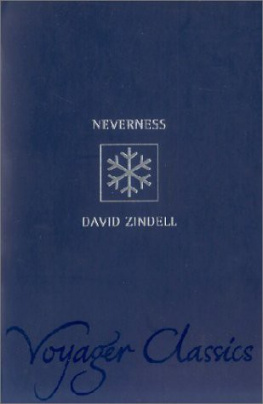


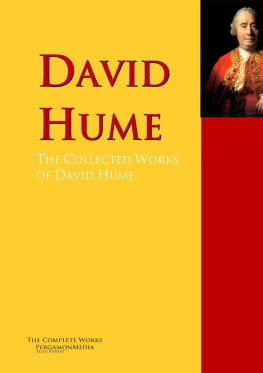
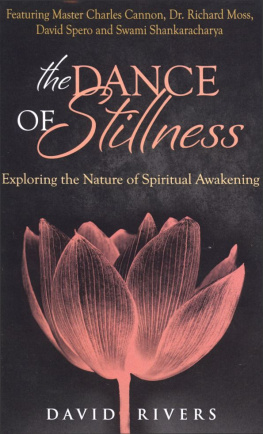

![David Lagercrantz [David Lagercrantz] - The Girl Who Lived Twice](/uploads/posts/book/140927/thumbs/david-lagercrantz-david-lagercrantz-the-girl.jpg)
